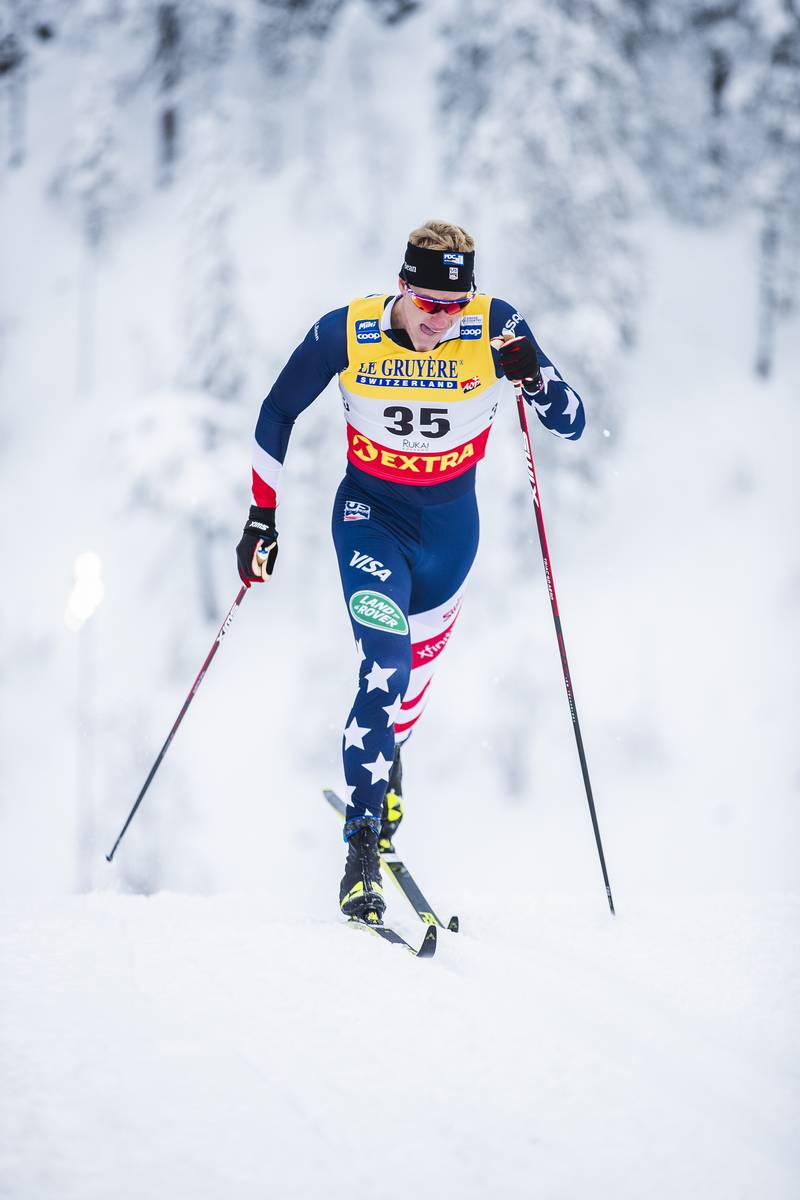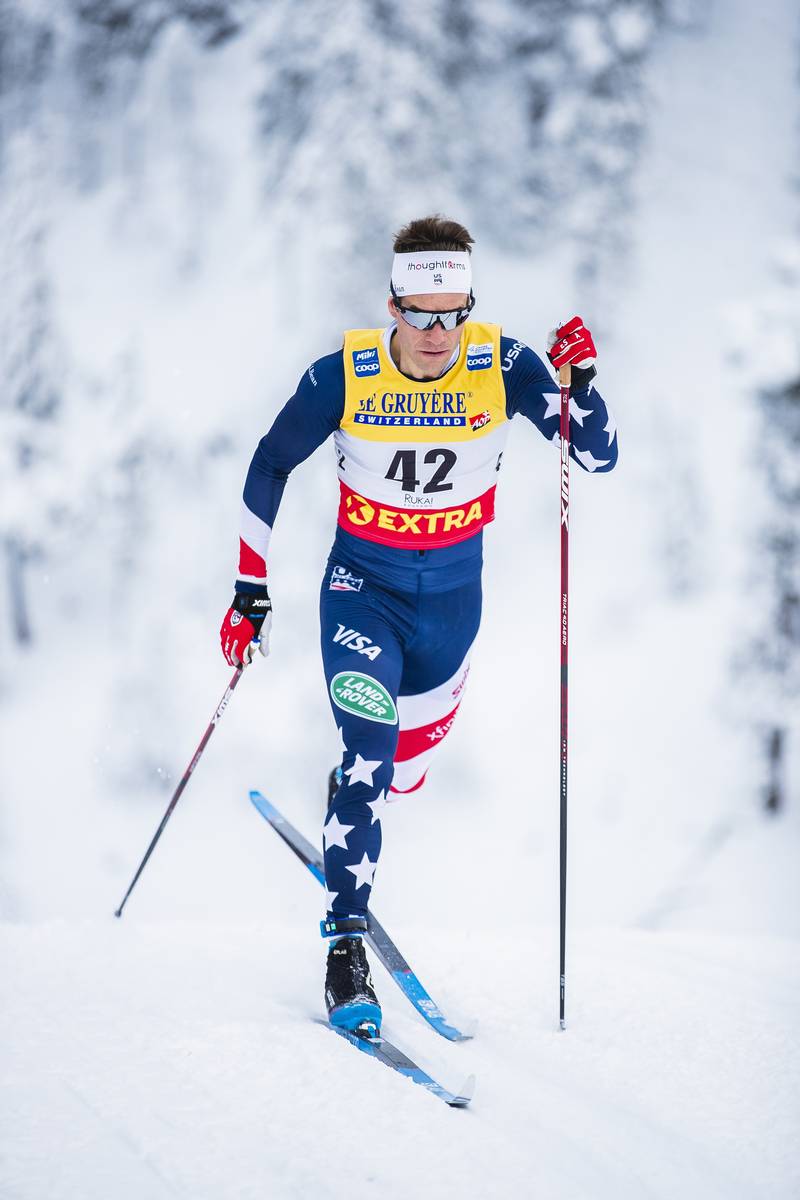This World Cup coverage is made possible through the generous support of Marty and Kathy Hall and their A Hall Mark of Excellence Award. To learn more about A Hall Mark of Excellence Award or to learn how you can support FasterSkier’s coverage please contact info@fasterskier.com.
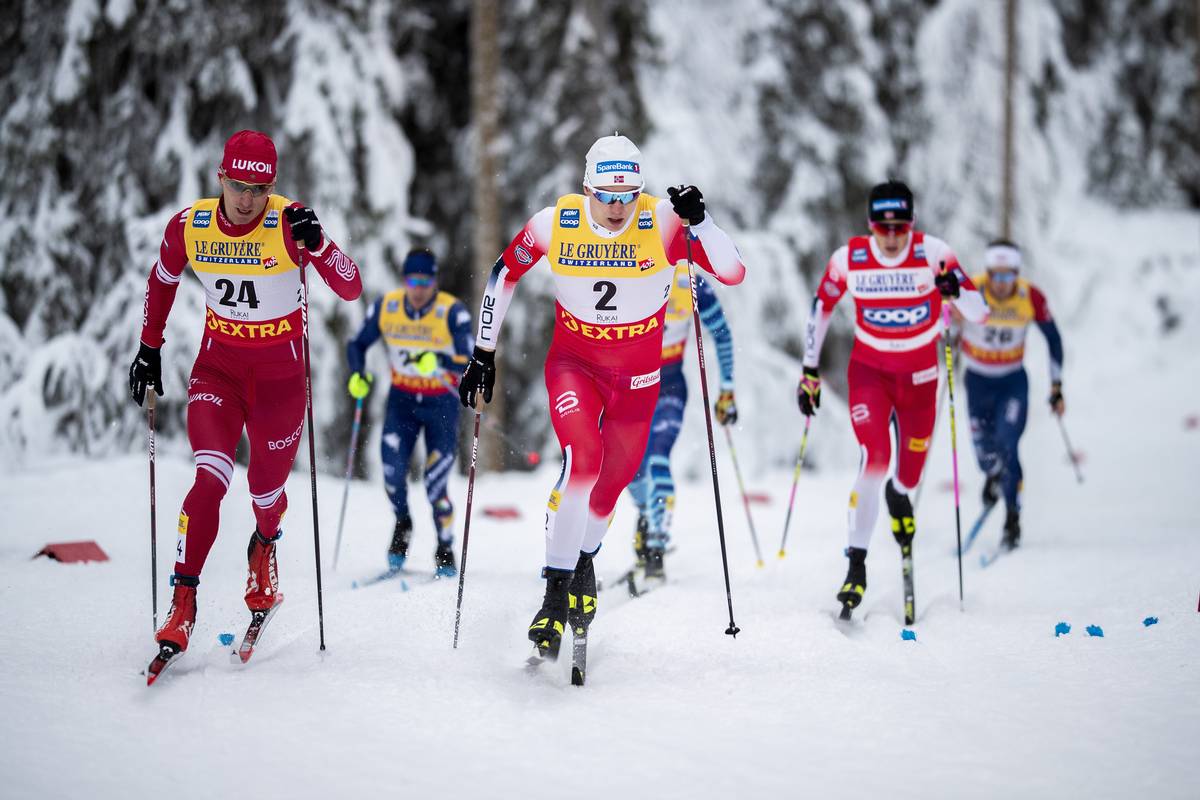
At roughly two minutes into the men’s final of the 1.4-kilometer classic sprint in Ruka, Finland, the race broke apart. On a notoriously steep and taxing hill, Norway’s Johannes Høsflot Klæbo has literally run away from would-be chasers in the past. Not so much this year.
Klæbo Klæboed. But so too did his Norwegian teammate Erik Valnes. Simply put, Valnes out Klæboed Klæbo on the hill, then maintained a svereal meter gap to win down the stretch in 2:59.56. He pipped the second place Klæbo by 0.61 seconds. The twenty-four-year-old Valnes won the World Cup’s opening race for his first individual World Cup victory. Emil Iversen, another member of Norway’s stacked men’s team, placed third for his eighth career sprint podium.
Last season’s overall World Cup winner, Russia’s Alexander Bolshunov was fourth. Norway’s Håvard Solås Taugbøl skied to fifth, and Switzerland’s Jovian Hediger sixth.
Klæbo and Valnes were paired in the first quarterfinal and first semi. Valnes placed second in both heats, initially by 0.19 seconds, then by an eye-blink in their semi: just 0.03 seconds. What could have been a deferential move in the final, being happy with a second-place to the reigning sprint king, Valnes did not relent in the final. Valnes crossed the line arms raised, while Klæbo slid across shoulders dropped, in an unfamiliar second place. Last season, on his way to capturing the sprint globe, Klæbo won eight individual sprints including the opening sprint in Ruka.
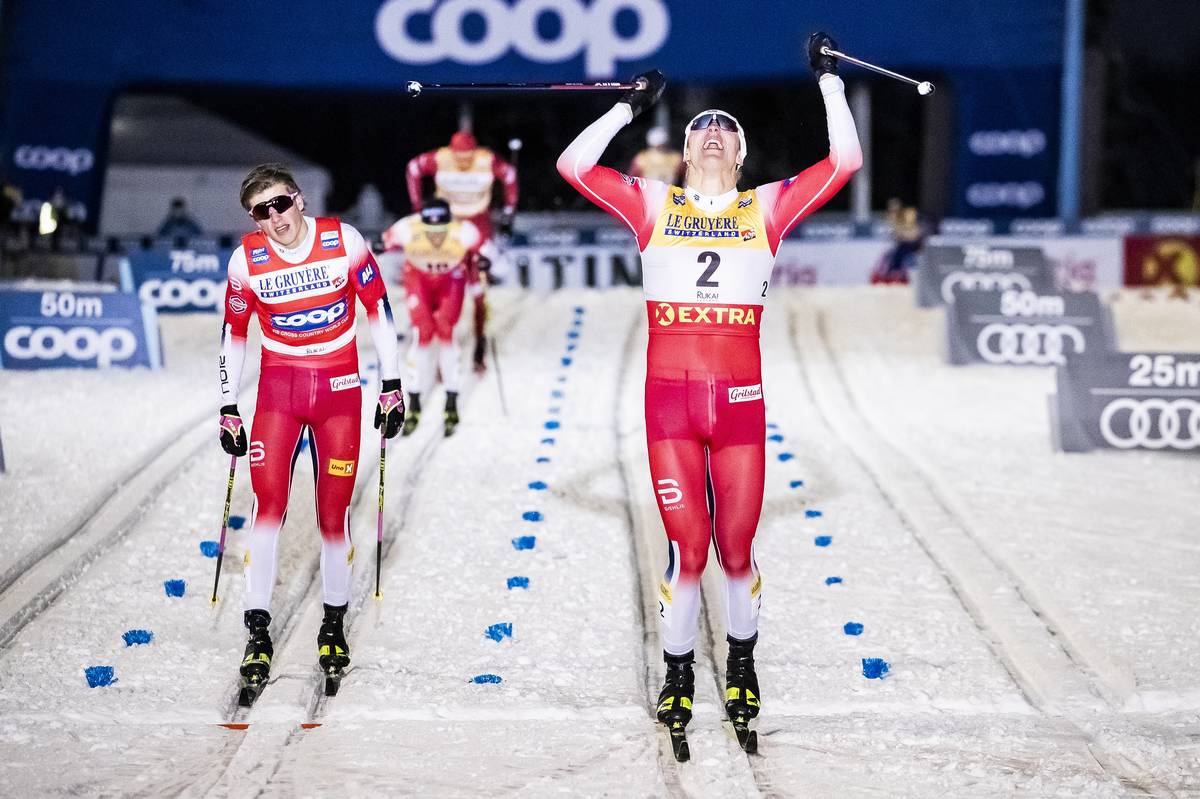
“This victory means everything to me right now, Valnes told the International Ski Federation after the race. “I tried all my life to be the best that I can and having this World Cup victory is the best thing I could ask for. I learned a lot (from Johannes) as he is the best sprinter of all times and I am happy to be with him on the team. It is very special to beat him on a track like this.”
The Americans did not qualify for the heats. Yet, according to Matt Whitcomb, U.S. Ski Team Head Coach, two twenty-year-olds in Ruka were standouts. JC Schoonmaker placed 35th overall, while Gus Schumacher, in his first European World Cup start, placed 43rd.
Post-Race Interview with JC Schoonmaker
“Very exciting for those two today,” remarked Whitcomb. “So a 35th in Ruka, one of the premier classic sprints of every year, that’s a really exciting result. … and to have Gus come out of the bottom of the course just charging into the last climb, finishing in the [low forties], that is exactly where we need those guys to be right now.”
Post-Race Interview with Gus Schumacher
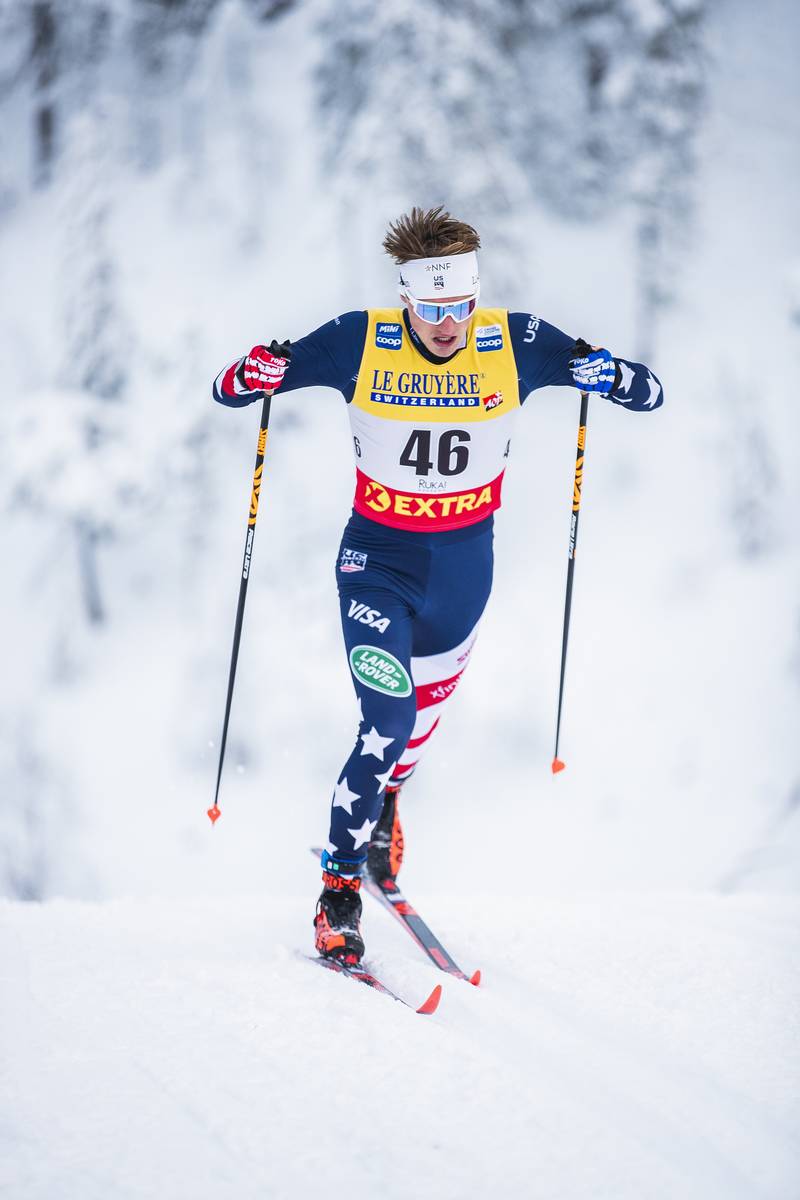
Logan Hanneman was the next best-placed U.S. skier in 46th, followed by Simi Hamilton in 50th, Kevin Bolger in 58th, and Scott Patterson in 78th.
Post-race interview with U.S. Ski Team Head Coach Matt Whitcomb discussing the men’s performances.
Racing continues tomorrow for the men with a 15 k classic.
Jason Albert
Jason lives in Bend, Ore., and can often be seen chasing his two boys around town. He’s a self-proclaimed audio geek. That all started back in the early 1990s when he convinced a naive public radio editor he should report a story from Alaska’s, Ruth Gorge. Now, Jason’s common companion is his field-recording gear.


